13 October 2020. CFS HIGH-LEVEL SPECIAL EVENTON STRENGTHENING GLOBALGOVERNANCE OF FOODSECURITY AND NUTRITION
This CFS High-Level Special Event seeks to keep food security and nutrition front and center on the global sustainable development agenda.
PLENARIES
During its three plenary sessions (one per day), the discussions:
- Took stock of the global food security situation guided by the State of Food Security and Nutrition in the World (SOFI) 2020 report and the CFS High-Level Panel of Experts (HLPE) report on Building a Global Narrative towards 2030;
- Reflected on the impacts of COVID-19 on global food security and nutrition and efforts needed to “build back better” using the HLPE issues paper on Impacts of COVID-19 on Food Security and Nutrition: Developing Effective Policy Responses to Address the Hunger and Malnutrition Pandemic; and
- Discussed the draft CFS Voluntary Guidelines on Food Systems and Nutrition and the draft CFS Policy Recommendations on Agroecological and Other Innovative Approaches, and consider their relevance to the objectives of the UN Food Systems Summit.
PLENARY 1 Overview of the Global Food Security and Nutrition Situation - RECORDING
Part 1: Opening Ceremony
Welcome remarks and event overview by Thanawat Tiensin, CFS Chairperson
Framing remarks by Heads of the Rome-based Agencies on their role in global food
security and nutrition and their collaborative commitment to CFS
»
- Qu Dongyu, Director-General, Food and Agriculture Organization (FAO) »
- Gilbert Houngbo, President, International Fund for Agricultural Development (IFAD) »
- David Beasley, Executive Director, World Food Programme (WFP)
Part 2: Setting the Scene: Evidence and Science
- CFS High-Level Panel of Experts’ report on “Building a Global Narrative Towards 2030 by Jennifer Clapp,
Team Leader CFS HLPE Steering Committee
- State of Food Security and Nutrition in the World 2020 SOFI 2020 Report presentation by Máximo Torero, Chief Economist, FAO
- Cost of achieving SDG-2 targets by 2030. Presentation of Ceres2030 project by Carin Smaller, Director, Agriculture, Trade and Investment International Institute for Sustainable Development (IISD)
- Research at the heart of transformation by Kundhavi Kadiresan, Managing Director, Global Engagement and Innovation, CGIAR
PLENARY 2: Developing Effective Policy Responses to Address the Hunger and Malnutrition Pandemic- RECORDING
This plenary reflected on the impacts of COVID-19 on global food security and nutrition and efforts needed to “build back better” using the HLPE issues paper on Impacts of COVID-19 on Food Security and Nutrition: Developing Effective Policy Responses to Address the Hunger and Malnutrition Pandemic
PLENARY 3: Recommendations on Agroecological and Other Innovative Approaches RECORDING
Discussed the draft CFS Voluntary Guidelines on Food Systems and Nutrition and the draft CFS Policy Recommendations on Agroecological and Other Innovative Approaches, and consider their relevance to the objectives of the UN Food Systems Summit.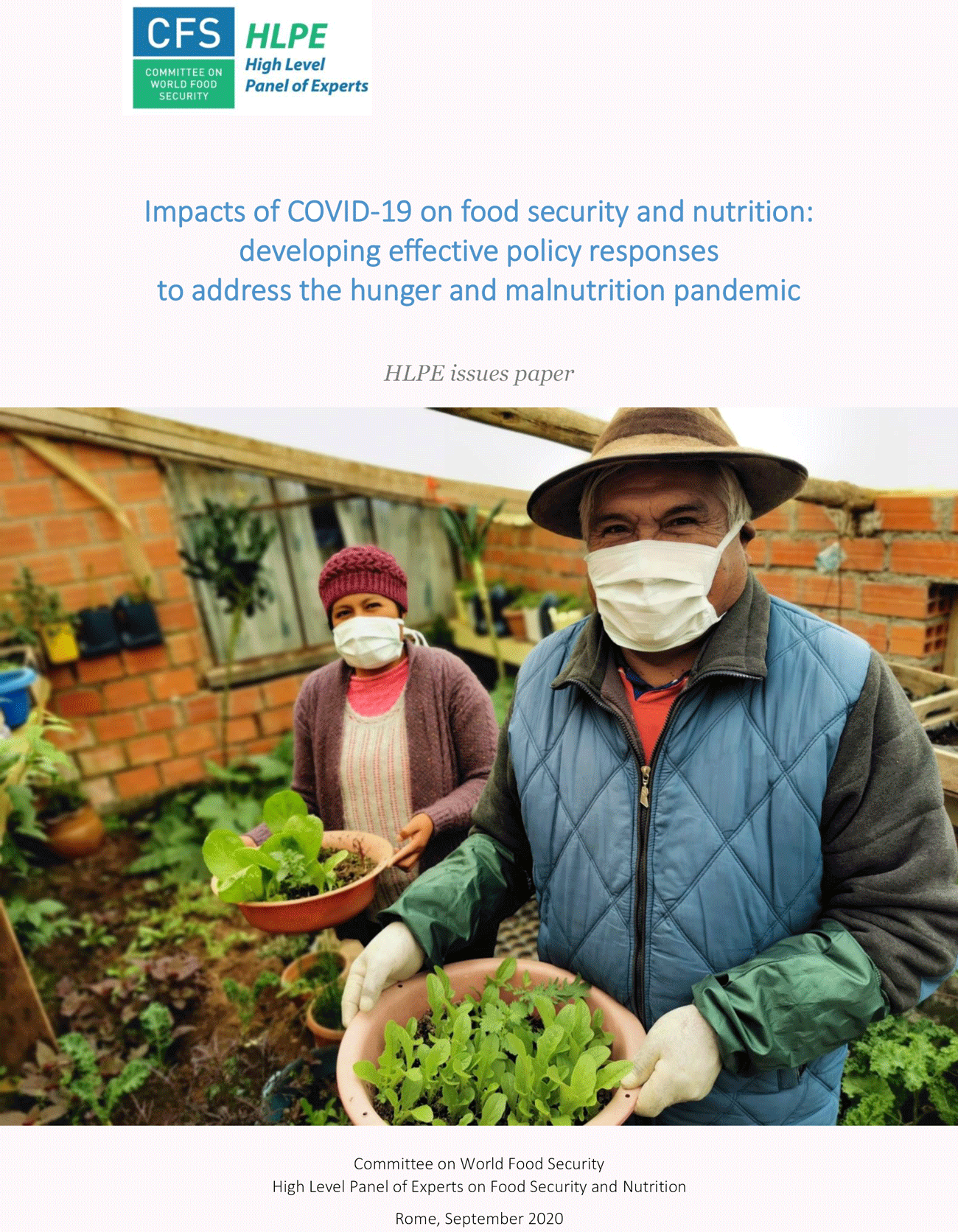 Resources (1):
Resources (1):
- HLPE. 2020. Food security and nutrition: building a global narrative towards 2030. A report by the High Level Panel of Experts on Food Security and Nutrition of the Committee on World Food Security, Rome. 112 pages
- Impacts of COVID-19 on food security and nutrition: developing effective policy responses to address the hunger and malnutrition pandemic HLPE issues paper. Committee on World Food Security High Level Panel of Experts on Food Security and Nutrition Rome, September 2020, 24 pages.
- Draft CFS Voluntary Guidelines on Food Systems and Nutrition 28 pages
- Draft CFS Policy Recommendations on Agroecological and Other Innovative Approaches, and consider their relevance to the objectives of the UN Food Systems Summit. 14 pages
Partner events:
- Event 1: Google Maps for Food Systems: A New Dash-board and Set of Actions to Inform Better Food and Nutrition Policy
- Event 2: Building Forward Better with Aquatic Foods
- Event 3: Connecting Agroecological and Integrated Policies in Times of Crisis
- Event 4: Building Back Better: Confronting the Impact of COVID-19 on Land Tenure, Food Security and Nutrition
- Event 5: Food Systems Fit for Purpose: Bold Leadership to Prioritize Human, Animal and Ecological Health
- Event 6: Youth Engagement and Employment in Agri-food systems: What Works? What Doesn’t Work? What Could Work?
- Event 7: Addressing data gaps in agriculture and global coordination efforts to strengthen food security and nutrition policies in response to Covid-19
- Event 8: The important Role of Trade in Promoting Resilience in our Global Food Systems
- Event 9: Transformative Approaches to Advance Gender Equality and Women’s Empowerment for Food Security, Improved Nutrition and Sustainable Agriculture
- Event 10: Scaling-up investments for Climate Smart Agriculture projects in Food Systems
- Event 11: The Potential, Practice, and Politics of Repurposing Public Agriculture Support for Healthy People, Planet and Economy
- Event 12: Covid-19 impacts: a transgenerational and women’s viewpoint on food systems transformation SEE RECORDINGS
Organizers: • Senegal • Switzerland • Secretaria de Medio Ambiente y Recursos Naturales, Mexico • German Federal Ministry for Economic Cooperation and Development • IFOAM-Organics International • Biovision Foundation for Ecological Development
- See the summary report
- See the recording - Password: CFSPE2020+
The main purpose of this partner event was to showcase such good policy practices, illustrating the key role of policymakers as agents of change when it comes to the long-term and resilient transformation of food and agricultural systems. Our goal is to connect these efforts through the Food Policy Forum for Change in order to increase learning between policymakers, as well as enriching the discussion on the role and instruments for country-level action to deliver food security and nutrition.
Objectives:
- a deeper understanding of existing approaches and instruments to operationalise agroecological elements at the policy level,
- exchange of practical knowledge on agroecological policies (e.g. identification of barriers and success factors),
- connecting existing frameworks available for supporting the policy for agroecological and food systems transformation,
- increased awareness of the need for redesigning our current food and socioeconomic systems to include resilience on a long term by applying agroecological principles in policymaking.
Speakers:
- Moderated by Frank Eyhorn, Executive Director of Biovision, the speakers and panelists are:
- Dr. Maria Tekülve, Federal Ministry for Economic Cooperation and Development, Germany
- Pio Wennubst, Permanent Representative, of Switzerland to FAO/IFAD/WFP
- Dr. Papa Abdoulaye Seck, Permanent Representative of the Republic of Senegal to FAO/IFAD/WFP
- Dr. Vijay Kumar, Head of Department of Natural Farming, Andhra Pradesh, India
- Emma Siliprandi, FAO Scaling Up Agroecology Initiative Team Leader
- Louise Luttikholt, Executive Director, IFOAM – Organics International
Resources (2):
Biovision/ Foundation and Future Farming (2020) Transformation of our food systems – the making of a paradigm shift, September 2020. 182 pages- This book is an overall assessment on what has been achieved in the past 10 years in the global food system
- The book’s 40 authors (including Hans R. Herren (former co-president of the IAASTD), Benny Haerlin (food and farming activist and NGO-representative in the IAASTD bureau), each experts in their field, take stock of the first decade after publication of the UN and World Bank led International Assessment of Agricultural Knowledge, Science and Technology for Development (IAASTD).
- They review key global developments in agriculture and nutrition and the course of discussions about our food systems as reflected in major international reports and UN agreements between 2009 and 2019.
- An advisory Group of former IAASTD authors identified eight key messages they draw from the evidence.
CIDSE (2020). FINANCE FOR AGROECOLOGY: MORE JUST THAN A DREAM? An assessment of European and international institutions’ contributions to food system transformation. CIDSE Policy
- This briefing is based on the research of a background report developed by CIDSE and Nina Moeller at the Centre for Agroecology, Water and Resilience (CAWR) of Coventry University.
- DOWNLOAD PDF ; BACKGROUND REPORT ; PRESS RELEASE ; INFOGRAPHIC
- As prominent public investors, the Green Climate Fund (GCF), the European Union (EU), European countries (EU Member States and others), the Food and Agriculture Organisation (FAO), the International Fund for Agricultural Development (IFAD) and the World Food Programme (WFP) have the potential to play a big role in supporting the transformation of our food systems.
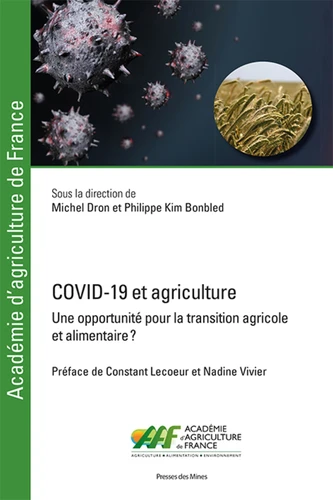 Académie d'Agriculture de France. (November 2020): COVID-19 et agriculture - Une opportunité pour la transition agricole et alimentaire ? 358 pages
Académie d'Agriculture de France. (November 2020): COVID-19 et agriculture - Une opportunité pour la transition agricole et alimentaire ? 358 pages- Marie de Lattre-Gasquet (CIRAD) cosigne avec Jacques Brulhet, Michel Dron, Jean-Louis Rastoin et Papa Abdoulaye Seck le chapitre "Crise du Covid-19 et sécurité alimentaire en Afrique"
- This report was published in April 2020 as part of the ‘Who Benefits?’ series, with financial support from Bread for the World (Brot für die Welt).
- The opinions and views expressed herein are the sole responsibility of Friends of the Earth International, Transnational Institute and Crocevia.



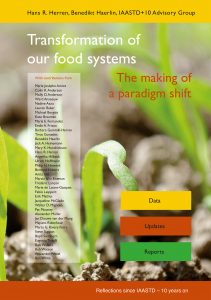
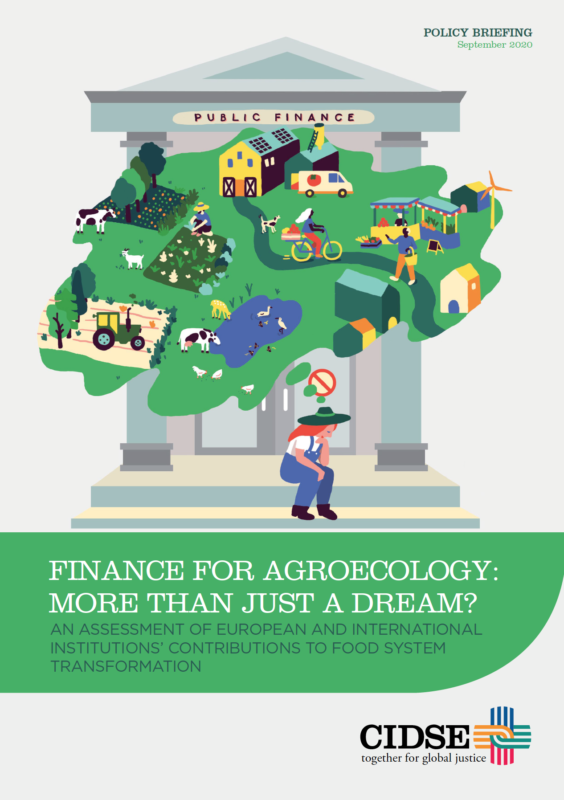
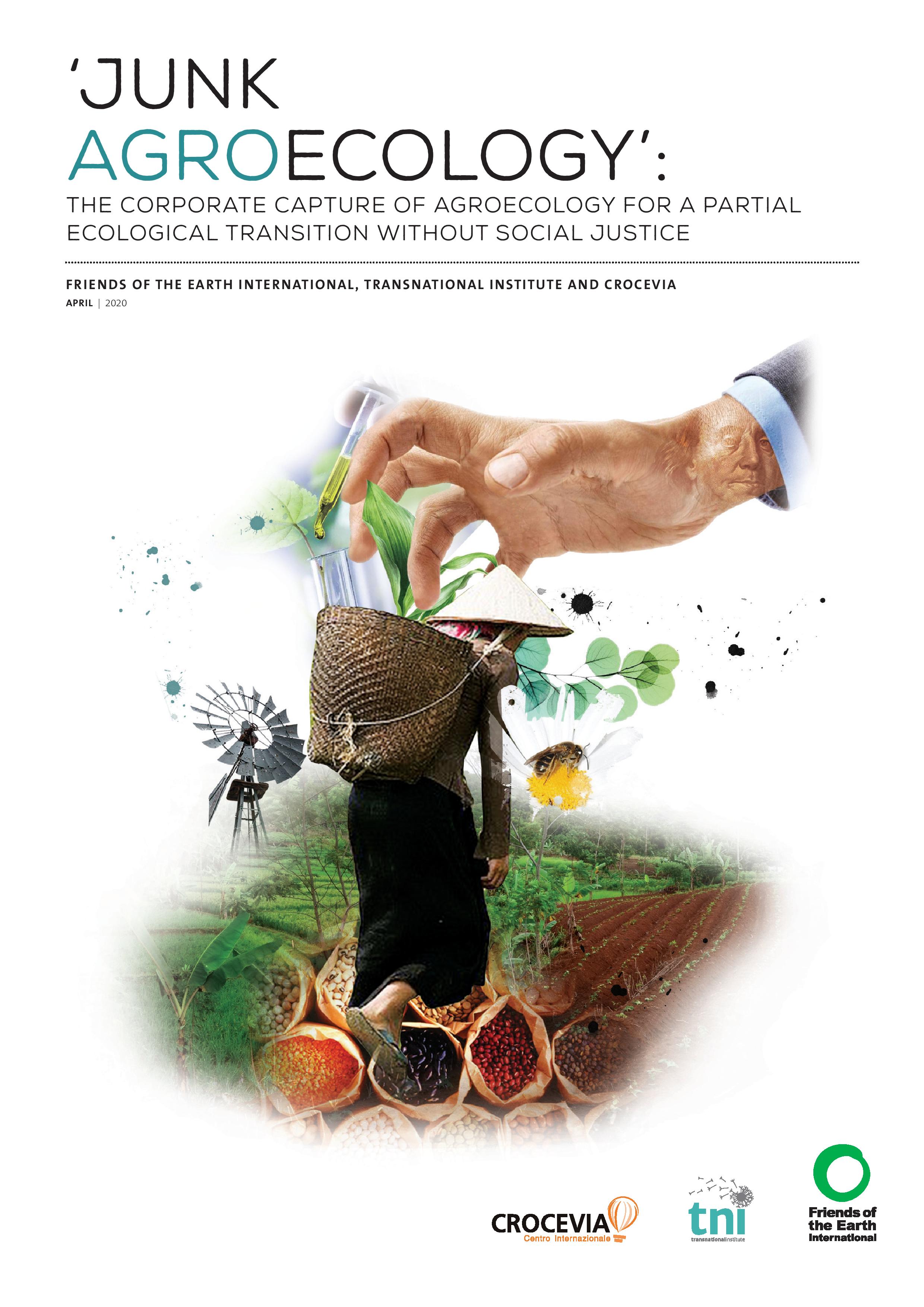
No comments:
Post a Comment